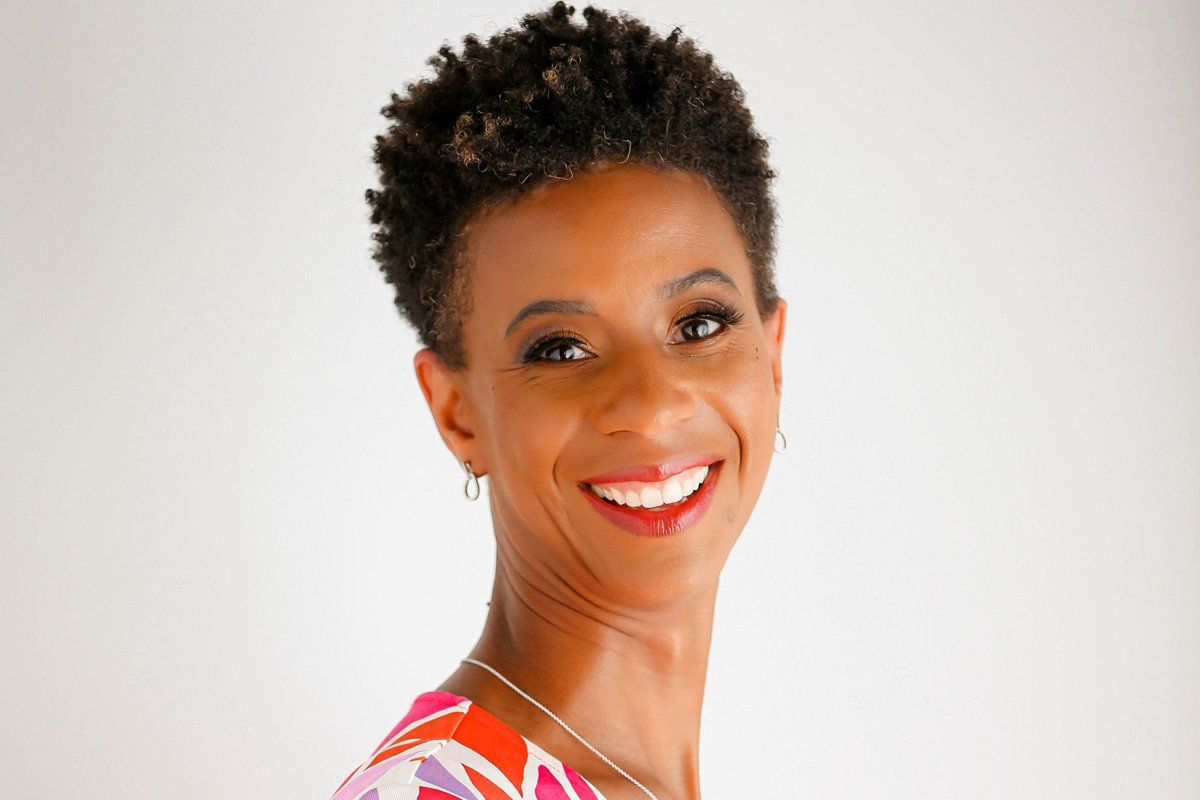
A Conversation with Makeba L. Williams, M.D., About Health Equity and Menopause
An OB-GYN explains how health disparities can worsen the midlife transition for many women of color
Nov 30, 2023
Jan 03, 2024
Your Health
Shannon Shelton Miller is an award-winning writer and journalist who specializes in education, parenting, culture and diversity, sports, and health and beauty articles. She has been published in the New York Times, the Washington Post, ESPN.com, Slate, InStyle and the Huffington Post.
Full BioLearn about our editorial policies

An OB-GYN explains how health disparities can worsen the midlife transition for many women of color
Menopause is a near-universal experience for women in midlife. And most women will experience some physical, mental and emotional changes in the years leading up to, and following, the end of their menstrual cycles.
While vasomotor symptoms such as night sweats and hot flashes are common for most women, how long they last and how severe they can be vary by race and ethnicity. Cultural norms can have a significant effect on how women experience menopause as well.
Read: Menopause Symptoms Are Far from Universal >>
“I had a Latina patient struggling to process what was going on physically in terms of her hot flashes and her night sweats, but also feeling there was no one she could reach out to about what she was feeling emotionally,” said Makeba L. Williams, M.D., a professor in the department of obstetrics and gynecology at the Washington University School of Medicine in St. Louis. “She said her village was there for her when she had her babies, but no one talked to her about what to expect during menopause. She was almost afraid to tell her mom she was contemplating hormone therapy because that was countercultural for her.”
As with other health conditions, racial, ethnic and cultural disparities can make a difference in menopause care. We spoke with Williams about the connections between racial disparities in menopause and what women can do to make sure they receive care that honors their personal and cultural needs.
This interview has been lightly edited for clarity and length.
HealthyWomen: What data exists on racial differences in menopausal symptoms?
Makeba L. Williams: In the SWAN study of women’s health, we found that African American women report having more hot flashes and night sweats. They get them more frequently and also for a longer duration — on average 10 years. It’s almost 9 years for Hispanic women, 6.5 years for non-Hispanic white women and even fewer years for Asian women.
HealthyWomen: Do we know the reasons for these racial differences?
Makeba L. Williams: We don’t know what exactly drives them. But if we think about women’s health in the midlife transition in a holistic way, vasomotor symptoms like hot flashes and night sweats can be markers for cardiovascular disease. When we look at who’s impacted the most by cardiovascular disease, we come back to African American women. This connection leads to more overall disparities for African American women’s health.
HealthyWomen: Living in neighborhoods with higher concentrations of air pollution and less greenspace may be associated with a younger age at menopause. What might be the correlation between those factors?
Makeba L. Williams: We’re still trying to understand how environment impacts the menopausal transition. Is there a direct relationship? Or is it one that’s affected by other factors, where exposure to air pollution and less access to greenspace causes other conditions that lead to a younger age at menopause? It’s an area to be explored, but we know that socioeconomic disadvantages, stress, caregiving responsibilities, and chronic exposure to racism and discrimination are associated with worsening symptoms. We see many of those factors in African Americans who have these disproportionate levels of menopausal symptoms.
HealthyWomen: What other connections did the SWAN study uncover?
Makeba L. Williams: We saw elevated cigarette and tobacco use among African American women and less physical activity. Longer durations of hot flashes and night sweats were associated with stress, lower educational attainment, anxiety, financial strain, poor social support, obesity, smoking and being unpartnered. There’s still a lot we don’t know, as women of color have been excluded in large numbers from menopause research. We need to be more inclusive in our recruitment of diverse research populations so we have a better understanding of what’s driving these disparities.
Watch: HealthyWomen Congressional Briefing: Women in Clinical Trials >>
HealthyWomen: Can cultural frameworks of menopause affect women’s physical, mental and emotional symptoms?
Makeba L. Williams: Culture can make a difference in what women disclose to others, what they talk about and what’s normative. White women might be more likely to seek treatment, while some women of color might feel they have so many other things they’re worried about and not seek treatment. In the grand scheme of things, the thinking might be, “Do I have time to be worried about a hot flash or a night sweat? Or a little weight gain in my midsection even though I’m working out?” We can also think about differences in body shapes, what bodies are celebrated in different communities and how weight is distributed, which means weight gain might not be seen as problematic in some non-white cultures. While 80% of menopausal women will experience hot flashes and night sweats, the level of bother can be very different, and what those symptoms represent may mean different things across cultures.
HealthyWomen: In many western nations, menopause is often depicted as a negative experience. Does that differ outside western contexts?
Makeba L. Williams: One common theme in the literature is that many minority women perceive this transition as a positive one. They have a posture of acceptance, and laugh their symptoms off because in the grand scheme of things, they feel they have all these other positive benefits to being in midlife and menopausal. Many will feel liberated for the first time in their life because they don’t have some of the challenges associated with the reproductive period, like pregnancy or bleeding. If you’re African American and disproportionately impacted by fibroids, when your period stops, suddenly you’re not worried about having to remember a second pair of clothes or altering your daily activities because you don’t know when your period might show up. Also, in many cultures, reaching a certain age and point of maturity comes with respect. There’s a feeling you’ve reached this vaunted station in life.
HealthyWomen: What is the best way to be prepared going into menopause, regardless of your cultural background?
Makeba L. Williams: Every woman deserves to have the best menopausal care. That might look like asking your healthcare provider for guidance about menopause in general. That might look like advocating and saying, “I know there are differences from one person to the next and how they experience menopause. Tell me more.” I hate to see women continuing to suffer in silence because their mothers or their aunties did, and because their own healthcare provider doesn’t bring up the topic. I want patients to have agency in seeking information and then deciding what’s best for them.
This educational resource was created with support from Astellas, a HealthyWomen Corporate Advisory Council member.